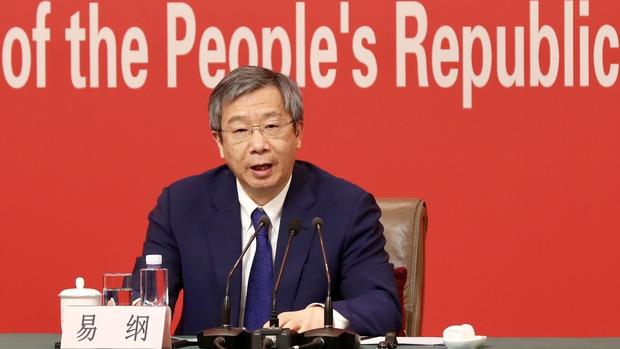 Yi Gang, governor of the People's Bank of China, answers questions at a news conference in Beijing, Sept 24, 2019. (ZHU XINGXIN / CHINA DAILY)
Yi Gang, governor of the People's Bank of China, answers questions at a news conference in Beijing, Sept 24, 2019. (ZHU XINGXIN / CHINA DAILY)
The governor of China's central bank urged preventing risk from high debt levels, as financial stimulus ramps up to curb prolonged economic contractions caused by the unprecedented novel coronavirus pandemic, according to an article he authored.
The nation's macro leverage level, or the total debt-to-GDP ratio, is likely to rise continually, and a task of the macroeconomic policies is to keep the ratio stable. It should strike a balance between economic stability and risk prevention to leave room for a long-term sustainable growth, Yi Gang, Governor of the People's Bank of China (PBOC), wrote for a piece in a magazine run by the country's forex regulator on Sunday.
(China) needs to keep using conversional monetary policy tools as long as possible to support the long-term development strategy.
Yi Gang, Governor of the People's Bank of China
ALSO READ: Key question asked over financial firepower
Targeted measures will support companies hit severely by the virus, including the offer of sufficient capital, he added. "The impact of the epidemic on China's economy will be short-lived, and the economic fundamentals will not change."
Yi stressed that, in the current stage, "a proper policy choice is to remain stable macro leverage ratio", requiring a broad stabilization of economic growth, house prices and market expectation, considering the demand for rising debt and the necessity to prevent risks.
READ MORE: PBOC cuts medium-term borrowing costs by 20 bps
The country's macro leverage level increased fast during the decade, up from 145.4 percent in 2008 to 248.7 percent in 2018. The leverage ratio for corporates surged to 159.8 percent at the end of 2016, which was a relatively higher level compared with other countries in the world, according to Yi's article.


